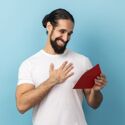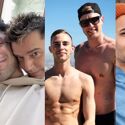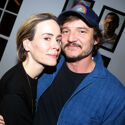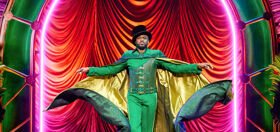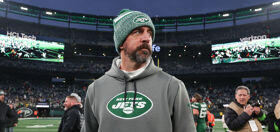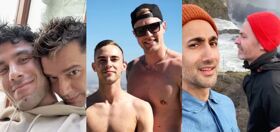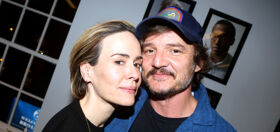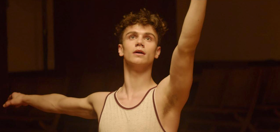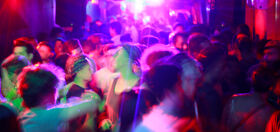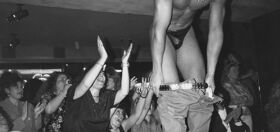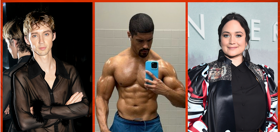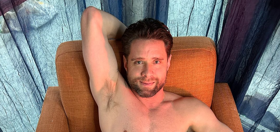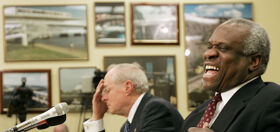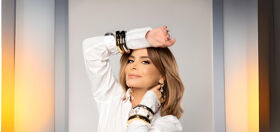
In 2013 I was on a mission trip in the Red Light District of Amsterdam leading a group of undergraduates from my Christian university. I was young, clueless, and closeted. When I saw the rainbow flags effortlessly dangling from the bars on the canal I shuddered with fear, conflicted by my own curiosity and desires. There lies the Forbidden Fruit. The venues I longed to explore were mere feet away but worlds apart. Surely I could never reconcile the mystical side of myself with these sex-obsessed homosexuals. There was no place for theological discussion or philosophical debate among these pleasure-seekers. Little did I know in the dens of these dive bars lived the very souls I sought.
Accidental Warlocks, the debut novel from renowned queer writer and sex columnist Jeff Leavell is about marrying such divides. Finding beauty in the grotesque, kissing the devil and god and embracing the limitless magic of queerdom in the darkest of places. Follow Jeff as he sniffs through bags of China White questioning our existence on this planet, contemplating our connection to one another and searching the streets of New York and Paris for the grittiest glory-hole.
Presented in the style of a memoir, Leavell blurs the lines of fiction and reality, “And this is only mostly true,” he teases in his introduction, enhancing our ability to live through his character’s life and feel every joy and pain of his romantic encounters. The nonlinear format aides itself to the idea that what we experience may not always make sense in the moment but is ultimately an invaluable part of our story. Raised outside the constraints of religion, Leavell offers a unique perspective on mortality often discussing it more casually than is comfortable causing the reader to feel as though Jeff has some supernatural power over death, living multiple lives in parallel universes.
As a younger homosexual, Warlocks acts as an educational map of gay history. Jeff investigates queer hot-spots that no longer exist, recalling hook-up culture before Grindr and the effects of drugs, sex and AIDS in the ’80s. Leavell’s anecdotes across time exemplify the problems of the past that persist today, highlighting toxic-masculinity and shame.
How about we take this to the next level?
Our newsletter is like a refreshing cocktail (or mocktail) of LGBTQ+ entertainment and pop culture, served up with a side of eye-candy.
Beware: Accidental Warlocks is not for the faint of heart. Leavell, one of the lead queer contributors to publications like Vice, Hornet and Them is no stranger to exposing his physical desires.
Today, as a 25-year-old I no longer see the world as black and white but an ever-changing shade of grey. Whether you relate more to the Bible or the stars we are all connected by a desire to feel a sense of belonging. Accidental Warlocks offers us intimate stories into the endless search for fulfillment broken yet magical world.
Below is a Q & A with the author:
A central theme for a lot of queer stories seems to be this overwhelming feeling of societal shame. Jeff doesn’t seem to carry any of that baggage with him. Why do you think that is?
I think in a lot of ways I was very lucky. I had incredibly supportive parents. I was not an easy kid. I was rebellious, I struggled with drugs and alcohol, I dropped out of high school, I stole my father’s car, I would run away for days at a time, and yet I always knew I was loved. Whatever problems existed for me existed in my head.
I was never made to feel ashamed for who I was, I was never told that who I was was wrong.
Also, growing up, both my parents had a lot of gay friends. Gay guys were around us all the time. There was never the sense that being gay was something to be ashamed of.
The other thing is the style of this book. While a lot of this is “fiction” much of it is “memoir” and I am looking back at my life, at who I was 20-something years ago, and I refuse to feel ashamed of who I was. What’s the point in that? I lived my life to the best of my ability. Sure, I made a lot of mistakes, but those mistakes play a big part in who I am now, and I like who I am now. I like who I was then. I’m not going to apologize for who I am. That feels incredibly counter-productive.
If there’s one message, one thing I want to scream from the rooftops it’s that none of us have to apologize for who we are. That doesn’t mean we don’t take responsibility for the things we have done, or make amends to those we have hurt, but we are all here together doing the best we can. Life is hard. If we are full of self-criticism and self-hate and shame we won’t make it. Our stories, our failures and atrocities, just like our successes and those happy moments, make up who we are, and they have the ability to make us more compassionate and loving, more understanding of each other.
I want to enjoy my life, and not be burdened by self-incrimination and shame, so that when it’s all over and I’m making my way to that next level I can look back and say, “Hell yeah, I fucking did it.”
I know the book takes a lot from your personal experiences, how much would you say is fictionalized and to what degree?
I have this idea about life, about truth: I think we fictionalize most of our lives. Memory is emotional, not factual. I remember discussing an event in my childhood with my brother. We both experienced the exact same event: we were both there, together, and yet we have completely different memories of the events: of when it happened, in the cause and the effect, in what people wore and said.
This idea that the lives we remember are somehow true, that the way we remember them, the order we remember them in, is based on fact is a myth. Our whole lives are colored by how we felt about what happened. How we felt can recreate events and people from our past. And in the end, which one is more real?
This book is how I see my life. Someone else who was there with me might write a totally different version of the same events. But this isn’t their book. It’s mine. I allow my feelings to dictate the events and the order of things: but the people, and the things that happened, the places, they are all real.
But, to be clear: if I needed to change the “facts” to convey the feelings, then I did. Because for me, it’s all about how I felt about what was happening, not what was happening.
You describe incredibly disturbing and often moving encounters in the world of sex-work: what are your feelings on that line of work now? How has that shaped you?
Human interaction is human interaction. In this book I know I romanticize a lot things that someone else might have found horrifying or debasing. I was able to find a lot of meaning in some of the grittier aspects of my life, a lot of beauty in what many people would call ugly. That might just be a part of who I am as a person. I don’t assign a lot of moral value to the events of my life. This can be good and bad. But I think it also allows me to not judge others who are experiencing similar struggles, or who are choosing alternative life styles, or behaving in ways that society might condemn.
What are my feelings on sex work? I think that we should be allowed to choose the direction of our life, even if someone else might think that direction is a “bad choice”. I’ve learned a lot from my bad choices. But I also think that sex work can be empowering.
If we took away the stigma, and the punitive legality of sex work, and we set up protocols that protect sex workers and their clients, then I think a lot of the unhealthy and negative aspects of that industry would begin to fall away.
By shaming and punishing we create a world that is hidden, a world that is full of violence and drugs and debasement. As a society we could just grow up, allow adults to make their own choices and support those choices, and help those who need help instead of sending them to jail.
Lastly, what do you hope the queer community takes away from this book and what advice do you have for the baby gays out in the world?
I guess the most important thing any of us can realize is that we are okay. We have nothing to apologize for. That who you love, and who you fuck, your gender identity, your race, your queerness, these things make you more beautiful, more amazing, they make you the most perfect thing in the whole world.
And go find a way to live the life you want to live. Because this is yours. Fall in love. Make out. Go dancing. Be happy, even in the squalor.
Find a way to be the biggest, most amazing you possible and everything else will work out. And if it doesn’t…at least you did it all the way.
God, I am literally the cheesiest man alive.
Accidental Warlocks is available for purchase at www.jeffleavell.com
Matt LeGrande is a stand-up comedian and contributor at The Advocate. You can follow him on Instagram @evangelicaldaddy to watch all 5 episodes of his webseries Fagabonds and see his upcoming shows.

